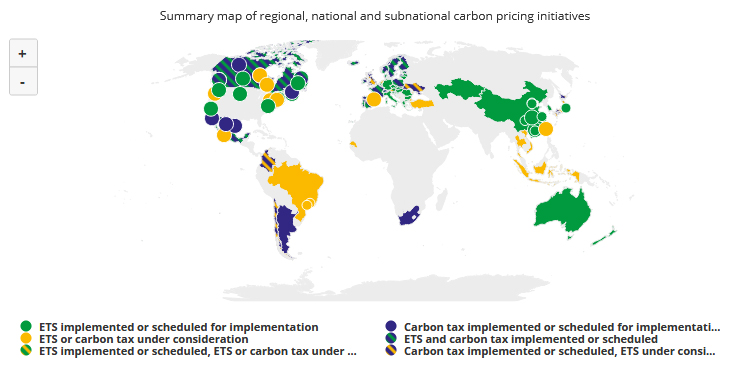This article responds to criticism of carbon pricing, despite its already wide application (Figure). It stresses that carbon pricing – through a tax or market – deals optimally with market failures, such as negative/positive externalities and public goods/bads, and thus represent a clear systemic perspective on problems and policies. Carbon pricing (CP) is moreover a prime example of systemic policy as it shifts simultaneously choices of consumers, producers, investors and innovators in all sectors – essential to a low-carbon transformation.
A common confusion is that the main advantage of carbon pricing is its efficiency or cost-effectiveness. But this requires effectiveness. In fact, carbon pricing is highly effective as no decision in the economy escapes its influence. As a result, it also limits energy/carbon rebound better than other instruments.
It is often overlooked that carbon pricing is critical to innovation. It steers innovations towards low-carbon products and processes as private investors are influenced by price expectations since these co-determine profit opportunities. Furthermore, unlike other instruments, carbon pricing stimulates among ‘clean’ technologies the cleaner ones, like solar PV panels with low-carbon lifecycles.
Carbon pricing represents a consistent economy-wide approach, which is better than sector-specific approaches that tend to be ad hoc, costly and susceptible to lobbying, while causing inter-sectoral carbon leakage. Moreover, policy harmonization among sectors and jurisdictions is needed to weaken freeriding and avoid leakage. A carbon price performs well as it facilitates comparison and harmonization of policies in distinct jurisdictions.
While CP has been criticized as inequitable, this is not the case if complemented by appropriate revenue recycling. In fact, no other instrument generates revenues for compensation, while adoption subsidies use scarce funds and are inequitable as they disproportionately go to well-off households.
